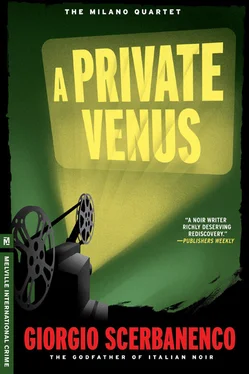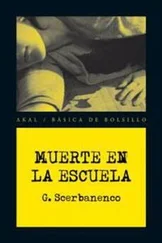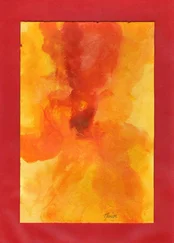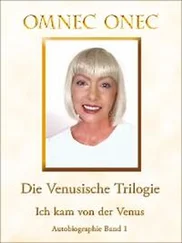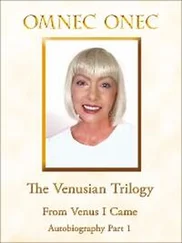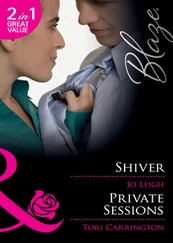Giorgio Scerbanenco - A Private Venus
Здесь есть возможность читать онлайн «Giorgio Scerbanenco - A Private Venus» весь текст электронной книги совершенно бесплатно (целиком полную версию без сокращений). В некоторых случаях можно слушать аудио, скачать через торрент в формате fb2 и присутствует краткое содержание. Жанр: Криминальный детектив, на английском языке. Описание произведения, (предисловие) а так же отзывы посетителей доступны на портале библиотеки ЛибКат.
- Название:A Private Venus
- Автор:
- Жанр:
- Год:неизвестен
- ISBN:нет данных
- Рейтинг книги:3 / 5. Голосов: 1
-
Избранное:Добавить в избранное
- Отзывы:
-
Ваша оценка:
- 60
- 1
- 2
- 3
- 4
- 5
A Private Venus: краткое содержание, описание и аннотация
Предлагаем к чтению аннотацию, описание, краткое содержание или предисловие (зависит от того, что написал сам автор книги «A Private Venus»). Если вы не нашли необходимую информацию о книге — напишите в комментариях, мы постараемся отыскать её.
A Private Venus — читать онлайн бесплатно полную книгу (весь текст) целиком
Ниже представлен текст книги, разбитый по страницам. Система сохранения места последней прочитанной страницы, позволяет с удобством читать онлайн бесплатно книгу «A Private Venus», без необходимости каждый раз заново искать на чём Вы остановились. Поставьте закладку, и сможете в любой момент перейти на страницу, на которой закончили чтение.
Интервал:
Закладка:
‘Well, I dance very well.’ Having satisfied the eager waiter with an order of whisky, he stood up and went and asked one of the girls for a dance: one of the homeliest, she wasn’t even wearing make-up. At the end of the dance, the girl accepted an orange juice at their table. ‘I can’t stay very late. My father lets me stay out until eleven, I can go home at midnight, but if he wakes up I’ll be for it.’
‘What a pity,’ he said. ‘My friend has a villa here, and he has a hi-fi and some wonderful records.’
At the word ‘villa’ the girl turned pensive, he took her back onto the dance floor as soon as the band struck up again and spoke to her gently. She seemed like the kind of girl who could understand the aspirations of two men alone on a starry night like tonight, and by the end of the dance she had agreed to two things: she would come to the villa, and she would bring along a friend.
‘But you’ll have to take us home early, half-past at the most,’ she insisted, somewhat unwillingly. She had even extended her schedule by half an hour.
It didn’t take long for the friend to appear, the girl was away for three minutes and came back with another girl just like her, they seemed like two suits of the same cut, one of one colour and the other of another, because the first was blonde, the second was a brunette. Their resemblance wasn’t so much physical, or in the clothes they wore, it was a spiritual resemblance. They both approved his buying a number of small bottles, they were pleased with the Giulietta, and got ready to make conversation during the ride, but at a hundred and twenty kilometres an hour on that road it was beyond them and they didn’t catch their breaths until they pulled up outside the villa. ‘I don’t like going so fast,’ the brunette said: her name was apparently Mariolina, or was Mariolina the other one? ‘Please drive slower on the way back, or we’ll have to walk.’
Davide didn’t sway again for the rest of the party, he was just a little stiff, and didn’t speak, Duca was the one who did the talking, because when you devote yourself to socially redeeming work you have to see it through to the end, isn’t that true, Dr. Duca Lamberti-shake of the head-and you, Dr. Duca Lamberti-shake of the head-are the prince of socially redeeming work, nay, the duke, Duca meant duke, didn’t it, ah, what a sense of humour: yes, he could liberate mankind, embodied for the moment by Davide Auseri, from the scourge of alcoholism; he could liberate mankind from the fear of death, mankind in that case in the form of Signora Sofia Maldrigati whose eyes went purple with terror as soon as the consultant who told dirty jokes came anywhere near her; he could liberate anyone, from any ills, liberation was his profession, and he spoke for almost an hour to the girls and to Davide, he tried to get the hi-fi to work but it was broken and then one of the girls switched on the radio to Roma 2, and he continued speaking, like a presenter now, with dance music in the background.
As he poured the drinks, he told the girls that his friend’s name was Davide and that he was a mute. The girls behaved themselves and didn’t drink too much, the things they told the two men about themselves were somewhat unlikely, but he and Davide accepted these things as if they believed them, and so they all managed to make this little get-together seem not at all vulgar, until Duca took Mariolina aside for a few moments, assuming that it was Mariolina, and explained the situation.
A few minutes later, Mariolina managed to get Davide up out of his armchair and walked sinuously up the stairs with him towards the sleeping quarters on the first floor: even with her high heels and her hairdo she didn’t come up to his shoulder. Once the two young lovers had disappeared, Duca stretched out on the sofa; the other girl, softened up by the music and a couple of drinks, sat down on the floor next to him, and, with her long hair around her face, turned into a sophisticated Françoise Hardy, murmuring the lyrics of a sad song. Then she broke off and said, more concretely and clearly, although passionately, ‘Well, here we are, is there somewhere we can go, too?’ And she turned her gaze towards the upper floor, hoping there was also a bed for her.
He poured her another drink, and drank some more himself. He couldn’t tell the girl that prolonged abstinence generates a kind of mental block, an adjustment to the state of chastity. Basically, chastity was just another vice: once you start being chaste, you can’t get out of the habit and you become even more chaste. But after a question like that from a woman, especially in Italy, a rejection, however skilfully done, was impossible. An honest, conscientious tramp like this Françoise Hardy, who had honestly agreed to keep him company, would never understand: she’d be offended, she’d think he was a cripple, in every sense of the word, she might even think he was queer. He didn’t want to upset such a nice girl from the nice Brianza. ‘It’s better here, but turn off the radio.’ There had been a high-ranking Fascist official during the Spanish Civil War who had liked to make love to a record of Ravel’s Bolero : Duca didn’t want to get to that point.
About 1:30, with great refinement, Mariolina came downstairs, alone. Duca and Françoise Hardy had switched the radio on again and, with great refinement, were trying to seem like good friends. Before Mariolina could get all the way downstairs, he went to her and gently sat her down on the bottom step, sat down next to her and requested a friendly explanation. The questions he asked her were very indiscreet, but the girl was intelligent in her way, and he appealed to her sense of understanding.
At question number 1, which was one of the less indelicate, the girl laughed out loud. ‘I also thought he’d fall asleep afterwards, but he didn’t, quite the contrary.’
Question number 2 was more indelicate, and the girl simply answered, ‘No.’
She also answered no to questions 3, 4, and 5. Her friend brought a drink over for her and clearly wanted to stay there, listening, but after hearing questions 6 and 7, and Mariolina’s answers, she seemed offended by their indecency and went back to the sofa next to the radio.
Question number 8 was the last one and Mariolina replied, almost moved, ‘No, he didn’t do that, he switched on the little radio next to the bed, and that was the only light in the room.’ She liked describing the scene: it must have impressed her. ‘He lit a cigarette for me and apologised for not speaking very much, then he asked me if I wanted to spend the night here or if I preferred to be taken home. I told him that I had to go home, I went in the bathroom and when I came back he was already dressed, trousers, shirt, shoes, and he apologised again.’
‘What for?’
‘For not taking me back himself, he told me he felt uncomfortable.’
‘Uncomfortable about what?’
‘About seeing you again.’
The psychosexual investigation was over. Even from that point of view Michelangelo’s David was perfectly normal. Boringly normal. The eight technical and analytical questions he had asked Mariolina had received unequivocal answers. Davide Auseri was a vigorous young man, with an old-fashioned craving for the opposite sex, and without any abstract desires or variants that would have been anomalous for someone of his age. The alcohol, even the high volume he was consuming, had not yet had any effect: there was no failure or irregularity, Mariolina’s expert testimony had been specific on this point.
He got up from the bottom step and helped his sexual informant to her feet. ‘One quick drink, and home we go.’
A few of the banknotes Engineer Auseri had given him were discreetly transferred from his jacket pocket into the girls’ handbags, but then the whole evening had had a tone of refinement about it. Duca dropped the girls outside the restaurant under the stars where they had been picked up, and which was still open, and then drove slowly back to the villa in the Giulietta. At the gate, he was met by a distinguished-looking old gentleman wearing a raincoat over his long nightshirt, who informed him in perfect Italian without even the slightest trace of dialect that he was the butler, apologised for his attire, and told him that he had been asked by young Signor Auseri to show him to his room and provide him with anything he needed for the night.
Читать дальшеИнтервал:
Закладка:
Похожие книги на «A Private Venus»
Представляем Вашему вниманию похожие книги на «A Private Venus» списком для выбора. Мы отобрали схожую по названию и смыслу литературу в надежде предоставить читателям больше вариантов отыскать новые, интересные, ещё непрочитанные произведения.
Обсуждение, отзывы о книге «A Private Venus» и просто собственные мнения читателей. Оставьте ваши комментарии, напишите, что Вы думаете о произведении, его смысле или главных героях. Укажите что конкретно понравилось, а что нет, и почему Вы так считаете.
